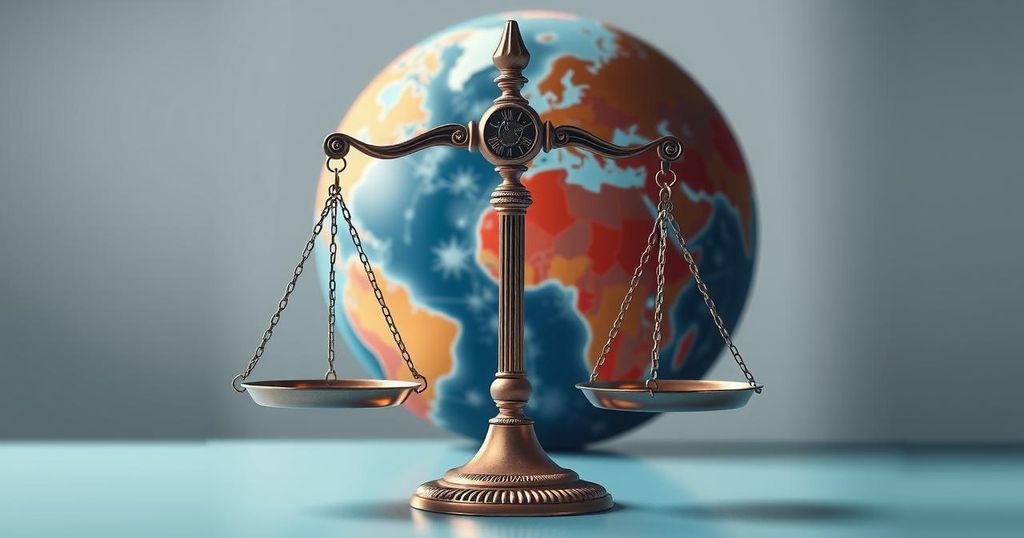The Biden administration has sanctioned Sudan’s military leader, Gen. Abdel Fattah al-Burhan, for civilian attacks and aid denials, leading to one of the world’s worst humanitarian crises. Secretary of State Antony Blinken emphasized the need for a solution beyond military means and highlighted the U.S. commitment to ending the conflict and holding leaders accountable. The situation remains dire, with significant civilian suffering and displacement ongoing.
On Thursday, the Biden administration imposed sanctions on General Abdel Fattah al-Burhan, the leader of the Sudanese military, due to alleged attacks on civilians and the denial of food aid to the populace. Secretary of State Antony Blinken described the situation in Sudan as potentially the “world’s worst humanitarian crisis,” emphasizing that military solutions do not exist for this conflict.
The U.S. Treasury Department indicated that General Burhan supervised military actions resulting in lethal attacks on civilians, including airstrikes that targeted sensitive locations such as schools and hospitals. The sanctions are a part of a broader commitment to ensure accountability for those in power amidst civilian suffering.
Deputy Treasury Secretary Wally Adeyemo highlighted that these sanctions reflect the U.S. commitment to holding military leaders accountable while also reiterating the need to end the ongoing conflict. These sanctions follow previous actions against General Mohamed Hamdan Dagalo, known as Hemedti, leader of the paramilitary Rapid Support Forces (RSF), demonstrating a unified stance against the ongoing violence.
The U.S. government determined that approximately 150,000 individuals have succumbed as a result of the conflict in Sudan, with both sides accused of committing severe violations. The RSF faces accusations of engaging in ethnic cleansing and genocide. More than 11 million individuals have been forcibly displaced since the violence began in April 2023, creating one of the largest humanitarian emergencies worldwide.
The humanitarian situation has worsened, exacerbated by harsh military conditions hindering the provision of essential supplies. Outside intervention has further complicated the conflict, with various foreign powers allegedly arming both sides. An anonymous Sudanese official expressed concerns that sanctions could drive Sudan closer to Russia, noting that the Russian defense ministry has proposed support to the Sudanese military.
The struggle for power continues in significant areas, including the capital, as the Sudanese military has reportedly regained control over crucial agricultural regions. Despite these developments, international reporting indicates extensive violence and deprivation, particularly toward civilians, which includes numerous assaults on healthcare facilities since the onset of conflict.
In light of these challenges, the international community has witnessed the deaths and abductions of numerous humanitarian workers, severely impeding efforts to provide much-needed aid. The ongoing conflict, fueled by local and foreign militias, complicates the humanitarian crisis even further, highlighting the dire need for comprehensive peace negotiations and accountability for violations of international law.
The situation in Sudan has drastically deteriorated since April 2023, following a power struggle between the military and the RSF. The conflict has led to substantial loss of life, mass displacement, and a critical humanitarian crisis. The U.S. government, aware of the suffering endured by civilians, has attempted to mediate peace efforts but has faced challenges in bringing both parties to the negotiation table. The complexity is further compounded by the involvement of foreign powers providing support to various factions, exacerbating the conflict.
In conclusion, the sanctions imposed on Sudan’s military chief underscore the U.S. commitment to addressing the humanitarian crisis in Sudan. The military has been implicated in significant civilian suffering, and ongoing violence has led to widespread displacement. The international community continues to call for accountability and effective measures to restore peace and security for affected populations while challenging the involvement of foreign powers in the conflict.
Original Source: www.washingtonpost.com






